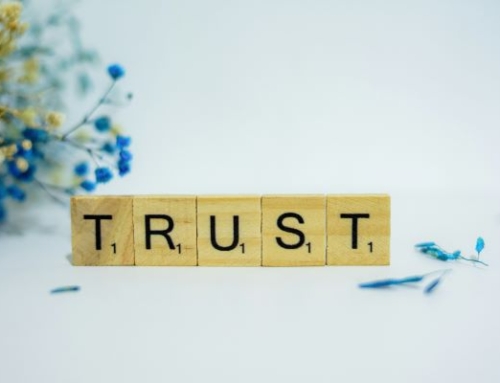Navigating Life as a First-Generation Child of Immigrants

Growing up as a first-generation child of immigrants is a unique experience filled with its own set of unspoken challenges and anxieties. It often feels as though your entire existence is a balancing act between the culture of your family and the culture of where you are growing up. In turn, it becomes difficult to relax or just be.
This balancing act is further complicated by the underlying challenges and pressures for perfection that are laced into the child of immigrant experience. This perfectionism is often the result of pressures to overcome racism or xenophobia, efforts to fulfill parents’ dreams of a better life, and the long-term effects of intergenerational trauma.
It’s not all bad though! Having a strong work-ethic and rich cultural world can eventually lead to resilience and growth. Though it can be enriching and empowering once you are able to strike the balance between your two worlds, the journey can be a cause for struggle.
Weight of the American Dream
Often, first-generation children are raised on the foundation of stories about parents leaving their home countries in pursuit of the American Dream; not only for themselves, but for their children – you. These stories are inspiring and encompass the true sacrifice and journey that parents make for their children. On the other hand, they often don’t include the unintended side effect – the immense pressure and need to perform.
As a first-generation child of immigrants, you feel a deep sense of responsibility to excel in every aspect of life. With this comes the impossible feat of being perfect to make your parents sacrifice seem worth it. Though this pressure could and does drive high-achievement, it can also, simultaneously, create feelings of anxiety and self-doubt.
The immense pressure to perform in being the best student, the highest ranking professional, and the perfect child, can take a heavy toll on your mental health. You might also feel a deep sense of guilt if you feel that you are falling short of your parents’ expectations or not successful enough to make your parents sacrifice seem worthy.
Identity and Guilt
The feelings of guilt from not being perfect enough may also trickle into your formation of identity. It can become a never-ending game of tug-of-war between two identities.
On the one hand, there’s a desire to preserve the traditions and values of your parents and their home culture. On the other hand, there’s a need to assimilate into the culture of the country where you are growing up.
Navigating how to blend multiple cultures can create a sense of uncertainty leading to existential dread, at times. It also tends to lead to persistent anxieties about “right” or “wrong” ways to exist.
Many times, there is a struggle with guilt in finding your place in a new culture while trying not to leave your old culture behind. This guilt might come from a fear of losing touch with your roots if you were to embrace a new country. Or, you might even prefer some traditions or norms in the new culture that directly oppose or contradict those of your parents.
If you don’t try to fit in and find your place in the new culture, you risk isolation and rejection from your peers. This duality can often lead to worry about betraying your parents’ values for the sake of fitting in.
You also might struggle with feelings of guilt and betrayal as you forge your own independent path. Whether it be in choosing a career, venturing into a different lifestyle, or aligning with a new belief system, any divergence from what your parents have lived could be interpreted as being ungrateful and disrespectful of your parents sacrifices. This can cause an internal conflict, alongside conflict within the family, as you try to balance your own wants with your parents’ expectations
Creating Resilience
The weight of these pressures and unchecked emotions can often lead to feelings of anxiety, imposter syndrome, and a looming fear of failure. The expectation to be the best in every part of life can feel impossible and all-consuming. Further, the fear of disappointing your parents can diminish the value of your achievements and personal strides.
Sometimes the anxieties of the experience can feel overwhelming and debilitating. At the same time, this can also create a deep sense of resilience. By working towards finding a happy medium between your two cultures, you learn how to adjust in environments where you might have originally felt like an outsider.
Further, by growing up with parents that had different experiences than yours and your peers, you have a unique perspective on gratitude and compassion. This unique perspective is what allows you to have self-awareness that can help you to thrive. The key to forming resilience is to not let the pressures of perfection, fears of rejection, and guilt control your life.
Finding Self-Compassion
Being a first-generation child of immigrants means moving through a path with many challenges, emotions, and unknown pressures. Though guilt is an inevitable emotion, there is a way to also develop self-acceptance and compassion. In creating a sense of acceptance and compassion, much of the guilt and anxiety you experience can be alleviated.
Acknowledge your feelings. It is important to acknowledge the feelings that you are having. By allowing yourself to name the emotions, you open the door to prevent them from controlling you. Through awareness, you can choose what to do with them.
It’s also important to remember that the feelings you are experiencing are a natural response to the anxieties and pressures of navigating the challenges that come with familial and societal pressure. Feelings might be uncomfortable, but that doesn’t make them wrong or bad. Nor do they have to become your identity.
Practice loving-kindness. By practicing kindness towards yourself, you will be able to develop empathy for your struggle. This, then, can reduce the intensity of the feelings of guilt for wanting to find your own independence. In many ways, empathy and compassion are mutually exclusive from guilt and judgment.
Finding self-compassion starts with recognizing that mistakes are inevitable and that they do not diminish your worth as a person. You cannot, no matter how hard you try, ever be perfect.
Acceptance. Finding self-acceptance involves embracing all parts of yourself – your strengths and your vulnerabilities. It also involves you recognizing that all of these parts, good and bad, are what make you, well, you.
Just like these parts make you whole, so does having two different cultural identities. By reframing your dual identity to be something special, you allow yourself to find your most authentic self.
Though being a first-generation child of immigrants is a journey with different challenges, it is also a pathway for growth and resilience. Though the experiences can feel overwhelming, it also helps shape your ability to adapt, be compassionate, and be a well-rounded individual.
Ultimately, chartering this journey is a unique and individual experience. However, with time, self-reflection, and a safe space, it is possible to find comfort in the balance between your two cultures, your parents’ expectations, and your personal goals.









